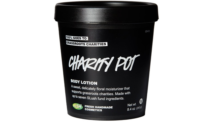APR encourages supermarkets to recycle rigid plastics
New economic benefits for grocers revealed

As grocery store chains focus on Zero Waste Initiatives, a recently developed economic overview of recycling grocery rigid plastics helps grocers recognize that recycling their bakery, deli and other “behind the counter” rigid plastic containers makes economic sense. According to the study by the leading plastics recycling group, recycling of these containers reduces the amount of material going to landfill, while at the same time generating new revenue for the chains.
The Association of Postconsumer Plastics Recyclers (APR, PlasticsRecycling.org), the trade organization representing the plastics recycling industry in North America, developed the Grocery Store Recycling Program in 2013. A 2014 case study of multiple grocery rigid plastic recycling programs revealed an average conventional supermarket generates between 80-150 pounds per week of rigid plastic containers within the bakery, deli, seafood and pharmacy departments. The study identified the economic benefits of recycling rigid plastics in supermarkets including lower waste disposal costs, as well as potential new revenue from marketing these materials.
APR pointed out that most plastic packaging used behind the counter can be easily separated and used as feed stock for many domestic plastic recyclers. The Grocery store project targets the recovery of high density polypropylene (HDPE - #2) and polypropylene (PP - #5) trays, pails, and covers.
“There is tremendous demand for these containers from grocery stores,” states Scott Saunders, general manager of KW Plastics in Troy, Alabama and Chairman of APR. “Because it is generally clean, and already separated, grocers should be able to generate substantial revenue should they make this material available for recycling.”
As growing numbers of U.S. supermarket chains recycle their rigid plastics as part of their Zero Waste strategies, the case studies reveal that removing five to seven thousand pounds of bulky rigid plastics from local landfills not only lowers grocer's annual waste disposal costs, but can also generate new recycling revenue through volume marketing.
For decades retail grocers have been deeply committed to recycling large volumes of cardboard (OCC - old corrugated cardboard) and film plastic (stretch and film wrap, as well as customer plastic shopping bags). Now, behind the counter rigid plastic packaging is becoming an integral part of supermarket recycling strategy. The studies found that a 1000 pound bale of recycled rigid plastic can be worth $100 to $200, while cardboard is generally worth $20 to $30.
“Our studies show there is at a minimum at least 350 million pounds of good, clean material available through stores for recycling,” comments Steve Alexander, APR’s executive director. “That is a great potential source of new material for recyclers, and a new revenue stream for stores. We are excited about the project, and expect to see it grow dramatically in the next few years”
Looking for a reprint of this article?
From high-res PDFs to custom plaques, order your copy today!





